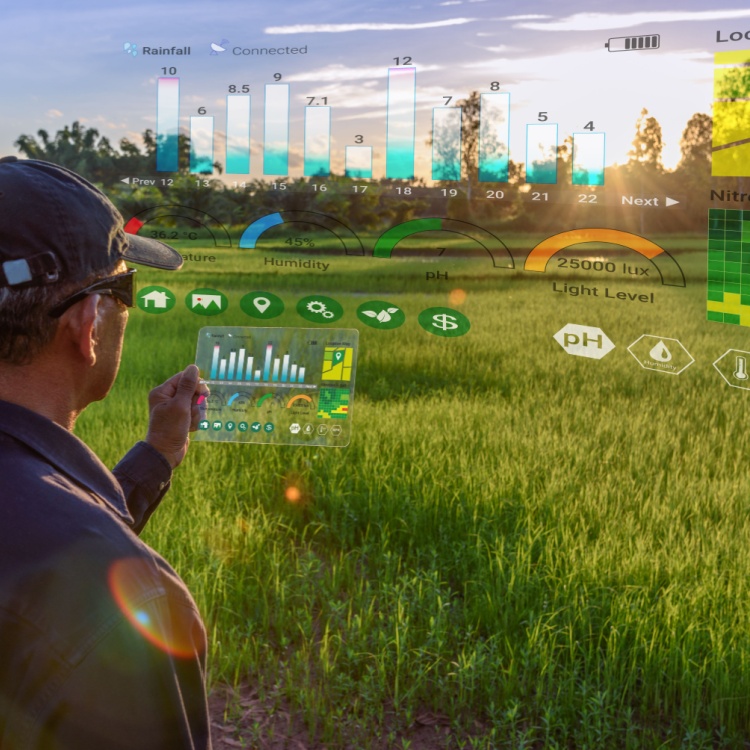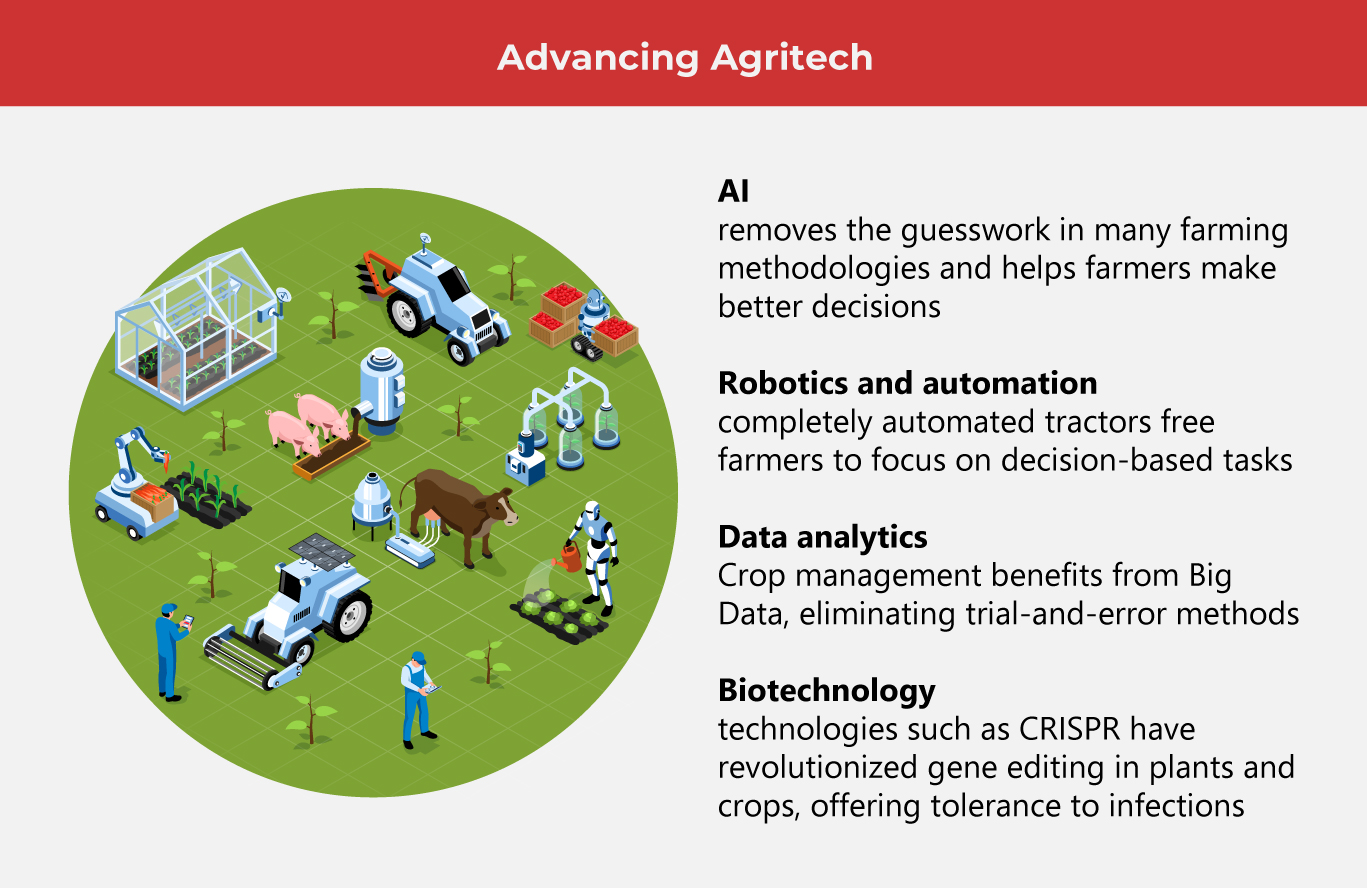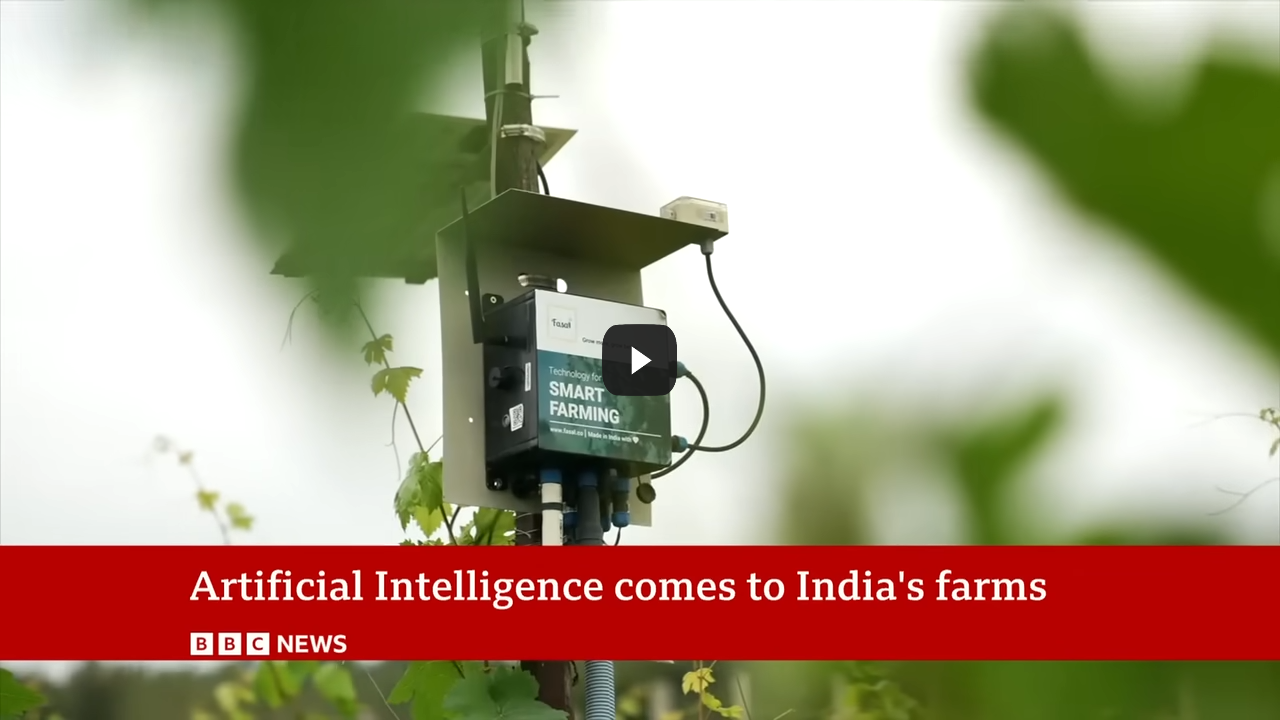Harvesting the Best of Tech for Agriculture

Agritech in 2024 is about to get even more advanced, making use of technologies such as AI, algorithms, machine learning, and even IoT.
What will farming and agriculture look like in 2024 and beyond? Experts say that the industry is entering a groundbreaking era where farming methodologies and techniques are about to experience a marked shift. Agritech is embracing technology such as AI, and embracing how algorithms can take away much of the guesswork in processes such as irrigation.
Farming is not as straightforward as it used to be. With climate change occurring all over the world, the challenge farmers face when it comes to ensuring plentiful and healthy crop yields has become unpredictable.
External factors such as weather conditions, changes in temperature, and rain impact farms all year round. Since agriculture relies heavily on the environment, and the environment is changing drastically, agritech is tasked to find solutions that ensure the health of the industry, providing food for the population.
(Also Read: How Autonomous Agriculture Is Transforming Our Farms) Let us take a look at how AI, robotics and automation, data analytics, and biotechnology are advancing agriculture.
Let us take a look at how AI, robotics and automation, data analytics, and biotechnology are advancing agriculture.
The AI and IoT Element
Crops and vegetables might be the last thing one might expect to use AI, but farmers in India have found that utilizing AI tools has benefitted their farms. In a feature from the BBC, Indian farmers demonstrated the power of AI on the field, in vineyards, and on farms.
Many farmers have been learning that farming devices equipped with cameras and sensors help gather data to help farmers make better decisions on irrigation, fertilization, and pest control. These devices are controlled via mobile apps which also allow them to monitor the data collected. IoT powers these integrated systems and connects these devices to a system that lets farmers work with these devices remotely.
Devices and apps like these remove the guesswork from operations and allow farmers to become more efficient with their methods. There is no need to waste precious resources like water when they know exactly the best times to use it. Some have even said that they have saved about half the amount of water they used before using the device.
Automated Farming Equipment
Heavy farming equipment such as tractors are also getting a lot more sophisticated. The Agbot, the first commercially-available autonomous tractor was showcased during Wales Tech Week in October 2023. It was developed by Sheffield University’s Advanced Manufacturing Research Center (AMRC) Cymru and was designed to be a leaner, smarter, and more efficient tractor.
According to The Manufacturer, the Agbot can run non-stop and unsupervised for up to 23 hours. It saves farmers time and allows them to focus on the other decision-based tasks.
One of the Agbot’s advantages lies in its complete autonomy. According to senior manufacturing research engineer at AMRC Cymu Harry Collins, it helps fill the gaps in current labor shortages. And because it is lighter than its more traditional predecessors, the Agbot “provides less ground compression and soil compaction”. Best of all? Farmers can run it using their tablets or mobile phones.
Planting the seeds of Data Analytics
The right software can help farmers manage crop yield, allocate resources more efficiently, and aid them in making informed decisions. High-tech farms that are equipped with computers and devices meant to monitor output do exist. The technology is meant to aid farmers with on-the-ground knowledge so that they can decide which practices are best for their crops.
Data analytics is helpful when it comes to studying weather and soil conditions, letting farmers monitor what they need from planting season to harvest season. Crop management benefits from Big Data and data analytics, because it eliminates the trial and error stage, which may be wasteful.
Bringing out nature’s best through Biotechnology
CRISPR (Clustered Regularly Spaced Soft Palindromic Repeats) is a system that occurs naturally in bacteria. CRISPR is akin to immunity in human beings but for crops and plants. It offers tolerance to viral infections.
This technology is said to have “revolutionized gene editing” especially in agriculture. Scientists say that gene editing helps crops become more resistant and resilient to pests and the possible diseases these could bring, reducing or even eliminating the need for pesticides, which could be harmful not only to crops but for humans consuming these crops. Gene editing also allows plants to thrive even when they are planted in degraded soil, even improving its nutrional content.  As one of the Top 20 EMS companies in the world, IMI has over 40 years of experience in providing electronics manufacturing and technology solutions.
As one of the Top 20 EMS companies in the world, IMI has over 40 years of experience in providing electronics manufacturing and technology solutions.
We are ready to support your business on a global scale.
Our proven technical expertise, worldwide reach, and vast experience in high-growth and emerging markets make us the ideal global manufacturing solutions partner.
Let's work together to build our future today.
Other Blog




